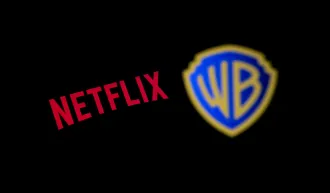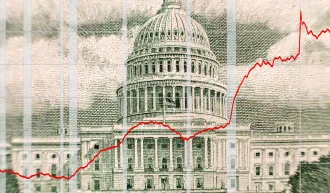May 01, 2011
| by Maria ShaoLike other nations coping with natural disaster, Japan received an outpouring of emergency financial aid and feet on the ground after the massive earthquake of March 11. Now, as the country shifts from disaster relief to recovery and rebuilding, some Japanese alumni of Stanford’s Graduate School of Business are demonstrating that business and leadership skills will play an increasingly important role.
Japan is home to more GSB alumni than any other country besides the United States and the United Kingdom. Many of these alumni are busy with initiatives to revive Japan’s economy, industries, and communities. Some have dealt with the disaster as part of their jobs. Others have volunteered advice and expertise to government, industry, and nonprofit groups in the stricken area of northeastern Japan. In the process, they have learned valuable lessons about crisis management, leadership, and Japanese society.
“As we move into the second phase, more and more businesspeople are getting involved,” said Daisuke Takatsuki, MBA ‘01, Tokyo-based director of the Carlyle Group, a global private equity firm. He has visited the devastated area to provide advice on setting up a reconstruction fund and rebuilding the local economy.
Kazuhiko Toyama, MBA ‘92, the outgoing alumni chapter president, believes some “creative destruction” may result from the triple disaster of earthquake, tsunami, and nuclear crisis. “Many things are gone, destroyed. So this is a good chance to rebuild from scratch,” said Toyama, who visited the Stanford campus in April to participate in a conference on rebuilding the Japanese economy. Toyama was involved in restructuring the nation’s banks as head of the national government’s Industrial Revitalization Corp. from 2003 to 2007.
The question now, he said in an interview, is whether Japan will reconstruct “something new, something innovative and more suitable for the 21st century, or just build the same old kind of [industrial] structures.”
Toyama, now chief executive of Industrial Growth Platform Inc. (IGPI), a private equity and consulting firm, was thrust into crisis management mode by the quake. IGPI owns three bus companies in the stricken area, with 2,100 workers and 1,200 buses. When the quake and tsunami knocked out other forms of transportation, his buses were immediately pressed into service to move emergency supplies and volunteers.
Throughout the crisis, Toyama tried to delegate decision-making to local managers. Shortly after the Daiichi Fukushima nuclear plant began leaking radiation, the government asked his company to send buses to evacuate nearby residents. “It was a very difficult decision for us because nobody knew if it was safe. I gave free authority to decide to local managers. People on the front line have more information.” The local managers ultimately decided to send 75 buses to help in the evacuation.
Toyama learned the importance of using informal networks to get things done. When faced with a severe fuel shortage, he pleaded with contacts in government, including in the prime minister’s office, for fuel to keep his buses participating in emergency operations. But since the buses were not officially classified as emergency vehicles, none of the bureaucrats would act. So Toyama started contacting personal friends by phone, email, and Twitter. Eventually, two friends came through, each supplying a tanker truck of fuel. “The grassroots network worked,” he said.
To Toyama, the Japanese government’s crisis response and his own experience trying to secure fuel underscored the weakness of Japan’s famed system of leadership by consensus, which can lead to inaction. In a crisis, said Toyama, “leaders must be very decisive. They cannot wait for consensus building.”
Sanae Yamada Ishii, MBA ‘01, came away with her own lessons on leadership. Since the quake, the associate director of human resources at Nihon Kraft Foods Ltd. has been supporting employees in Tokyo and Sendai, a city in the devastated area. She has led the setup of energy conservation and business continuity programs to help Nihon Kraft get through electricity shortages resulting from the disaster.
When the 9.0 quake struck on the afternoon of March 11, Ishii was the only Japanese director in the Tokyo office. While monitoring events by TV and radio and keeping communications open inside and outside the company, she had to make the call whether and when to let 200 Tokyo employees go home. She decided to release employees while buses were still running, but she also opened up conference rooms for workers to sleep in if they couldn’t get back home. She knew the importance of communicating proactively and anticipating employees’ questions, so she quickly offered that the company would pay cab fares home or subsidize dinner costs for those staying in the office.
Later, Ishii helped employees cope with fatigue, depression, panic, and other emotions. She helped organize town hall meetings for employees to talk about their quake experience and emotions. She facilitated stress-relief activities such as a yoga session in the office.
At one point, Nihon Kraft wanted to bring its Sendai employees to Tokyo for medical check-ups and a respite. But the employees did not want to leave their retail customers behind to dig out from the devastation. This reflected a Japanese belief that “you won’t leave your customers but will suffer with them,” Ishii said, likening the employees’ stance to that of a samurai. Nonetheless, several days after the quake, she decided to order them back to Tokyo and arranged for their flights. But she also made it clear that the company understood and respected their loyalty to customers. “It was a hard and challenging decision,” she said.
For Ishii, the disaster attached real-life meaning to what she had learned about leadership at the GSB. At her commencement, she recalled, then-Dean Robert Joss told graduates that the reason they had gone to the GSB was to learn how to lead organizations. “I was really moved by those words,” she said. As her office was shaking during the quake, Ishii thought about leadership. “It came to my mind. ‘Now I should be a leader and act as a leader’. In emergencies, real leaders will emerge.”
Atsushi Yokoyama, MBA ‘01, learned an important lesson about overcoming disasters: Focus quickly on where real needs lie. The principal at Bain Capital Asia LLC and several colleagues identified a crucial problem to solve - a transportation bottleneck at the so-called “last mile” between emergency supply warehouses and evacuation centers and devastated villages and homes.
When Bain Capital partners worldwide donated about $2 million to launch the Bain Capital Japan Disaster Recovery Fund in partnership with two nonprofit organizations, Yokoyama and colleagues borrowed 40 small trucks from a truck association and bought 60 used minivans from car dealers to haul supplies and volunteers. They hired logisticians to manage the fleet. They visited 12 cities and towns to determine local needs and to “market” their operations, and they arranged for a Japanese restaurant chain to deliver meals twice a week to several small evacuation centers in one of the most hard-hit towns.
As private equity investors, “our job is to find out the optimal use of capital in the shortest time,” Yokoyama said. “This was fundamentally the same. What’s the optimal use of the funds to benefit the victims? The sooner, the better.”
Over the medium and long term, there will be many more opportunities for businesspeople to help rehabilitate the Japanese economy, say GSB alumni. For instance, there is discussion of how to revive and restructure the long-struggling fishing industry in northeastern Japan. Takatsuki of the Carlyle Group has participated in discussions on setting up a company to buy vessels to replace those lost in the tsunami and to hire fishermen as employees rather than small, independent operators. There are opportunities for entrepreneurs as Japan rebuilds. Shige Yamaji, MBA ‘93, who was working with farmers and fishermen to market their produce in cities before the quake, will also be addressing the changed situation. And after small coffee shops were destroyed or damaged, there has been talk of creating an industry cooperative to operate shops on a larger, more efficient scale than before, Takatsuki said.
Stanford GSB alumni outside Japan can also play a role by keeping up interactions with the Asian nation. In the short term, “charity” can help, Toyama said, but in the medium and long term, Japan needs foreign investment, tourism, and other economic activity to return to normal. Activity from the GSB community and the business world, he added, would give “a strong signal that Japan is back and that Japan is safe.”
For media inquiries, visit the Newsroom.





